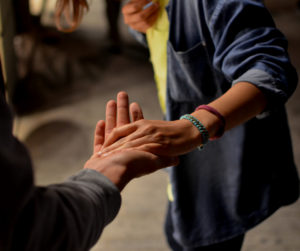29 Dec Share Your Burn Survivor Story
The ancient art of storytelling is a lifeline in this challenging era of massive geopolitical upheaval. Hard to believe that this revered tool partnered contemporary social media, would be a vital means of cultural preservation to dwindling indigenous populations and global diasporas, struggling the keep their history, heritage, — and entire existences alive. In this context, storytelling is a way to connect the past to an uncertain future, to forge and strengthen active connections, to reinforce a way of life, to illuminate a path forward.
In any context, stories affirm who we are, where we’ve been, and where we’re going. They give wings to our experience, connecting us to others in the world community who share our story.

Storytelling starts the conversation, the journey of self- discovery, and the ultimate redemption. Telling the story allows us to interpret and translate our own experience, and give it perspective in our lives. It gives form and sense to the often incomprehensible and senseless. The random circumstances of life become linked to our emotions, reactions, and finally to coping mechanisms that lead to healing. Telling your story expands our awareness, and allows us to grow, and resume control of our lives.
In the aftermath of catastrophic, life-changing injuries, burn survivors can benefit more than most from telling their stories. Telling a happy, positive story is easy, but revealing an incident with grave, even dire repercussions, and maybe no known outcome, requires a lot more courage, thought, and soul searching. The telling process is fraught with self- discovery as the storyteller confronts uncertain demons in the narrative – countless conflicting emotions and reactions to the experience that can be painful and embarrassing to admit. The realization that the storyteller benefits more from the telling process, then the listener does from the revelation, can be scant comfort during the undertaking.
Don’t worry about how to tell the story, let the story tell you. Start with free association. Just jot down any and all impressions, reactions, or emotions connected to your experience. Let them flow freely and ultimately your purpose, or what you feel the need to tell most, will emerge. Consider what you’ve learned from your personal experience, what you’ve learned from others, and what you’ve learned about the world around you. No matter how you tell it, the universal context of starting it at a personal level and expanding it to a global spectrum, will resonate with your audience. Along the way, both you and your listeners will assess and direct your collective actions to proactively manage your circumstances.
Telling your story will be your salvation, saving you and other burn survivors. You will learn more about yourself by telling your story, and those who are listening to it will learn more about their own experience from hearing how you handled yours. Someone in the burn survivor community needs to hear your story, so that he or she can begin to make sense of their own.
To share your burn survivor story, please visit our website https://burnsurvivor.com/burn-survivor-stories
For more information about burn injuries, please visit our website www.burnsurvivor.com
